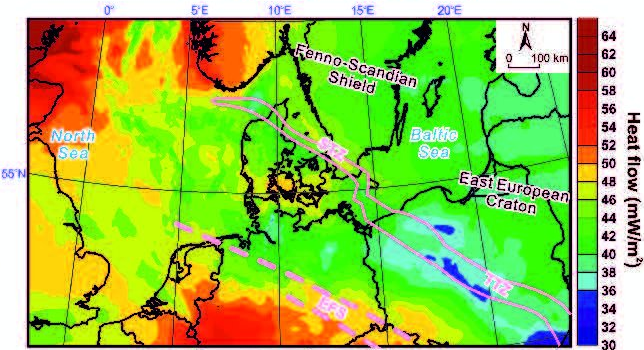Understanding heat transport in sedimentary basins requires an assessment of the regional 3D heat distribution and of the main physical mechanisms responsible for transport of heat. We present 3D numerical simulations of heat transport based on regional 3D structural basin models of the Central European Basin System and assess the relative influence of conductive versus convective heat transfer. The more than 12 km thick sediment infill includes a layer of strongly mobilized Upper Permian (Zechstein) salt. As salt is thermally very conductive, but hydraulically impermeable, the distribution of the salt exerts a strong control on both the conductive and convective heat transport. We use differently detailed 3D structural models of the area to assess the influence of variations in thermal rock properties, of different configurations of the deeper lithosphere and of the mechanism of heat transport considered. We find that conductive heat transport is the dominant mechanism and that the configuration of the deeper lithosphere controls the regional pattern of the temperature distribution. The latter is superposed by local temperature variations resulting from the spatial interaction of thermal rock properties in the sedimentary fill with a dominant influence from the thickness and geometry of the thermally highly conductive salt layer. In addition, the thermal field of the upper few km is influenced by groundwater flow, causing advective cooling (forced convection) on a basin scale and free thermal convection locally.
Poster
Shallow and deep control on the thermal structure of basins - predictions from 3D models
Heat transport processes within the NEGB and their sensitivity to the resolution of the mesh - results from 3D numerical simulations
Partner
University Potsdam: Prof. Maria Mutti
Funding
Bundesministerium für Bildung und Forschung - BMBF
Im Rahmen der "Spitzenforschung und Innovation in den neuen Ländern" GeoEnergie Verbundprojekt zwischen Universität Potsdam, BTU Cottbus und Helmholtz-Zentrum Potsdam Deutsches Geoforschungszentrum GFZ
More information about GeoEn


